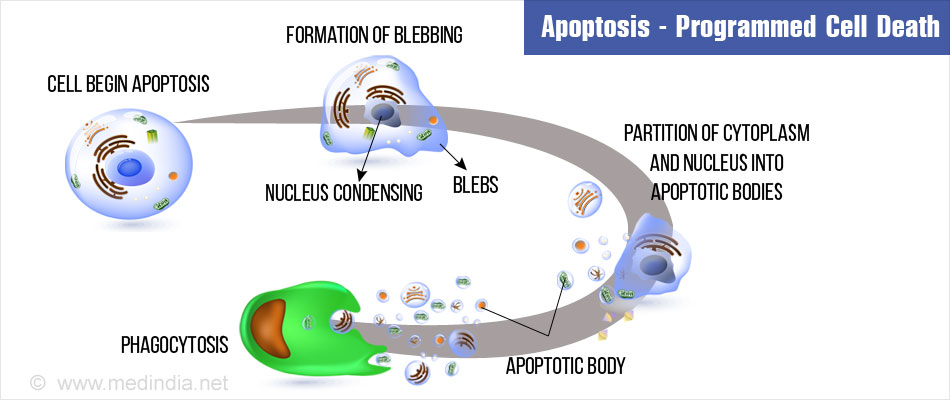- Alzheimer's Disease Genetics Fact Sheet - (https://www.nia.nih.gov/alzheimers/publication/alzheimers-disease-genetics-fact-sheet#alzheimers)
- Genes associated with Alzheimer’s disease: an overview and current status - (http://www.ncbi.nlm.nih.gov/pmc/articles/pmc4876682/)
- What Is Alzheimer's? - (http://www.alz.org/alzheimers_disease_what_is_alzheimers.asp)
- Genetic counseling and testing for Alzheimer disease: Joint practice guidelines of the American College of Medical Genetics and the National Society of Genetic Counselors - (http://www.ncbi.nlm.nih.gov/pmc/articles/pmc3326653/)
What is Alzheimer’s disease?
Alzheimer’s is a form of dementia that affects people at an advanced age.
People with Alzheimer’s develop problems with thinking, memory and as the disease progresses, it can affect the daily activities and tasks carried.

What led Scientists to Believe That There Could be a Genetic Basis to Alzheimer’s?
Scientists found that if a father, mother, brother or sister had Alzheimer’s, then the likelihood of an individual getting Alzheimer’s was greater. This led them to investigate and to study the effect of gene mutations that could increase the risk for the disease.
Scientists discovered certain genes that are linked to Alzheimer’s but the presence of gene mutations at these sites increase the risk for Alzheimer’s but doesn’t necessarily lead to the development of Alzheimer’s.
Genetic Testing for Alzheimer’s disease
The various genes associated with Alzheimer’s disease that are determined after independent research studies, need to be validated further. Moreover, the genes that are popular in specific populations need to be studied to understand the importance of specific genes in that particular population.
Genetic testing for Alzheimer’s disease is not a routine, however whenever there is a strong family history some adults may wish to know their chances of getting the disease later in life. Any testing is not fool proof and even if you test positive it is possible that you may escape the affliction due to other factors too. Generally it has been found that an active healthy life that includes a diet rich in fruits and vegetables with physical exercise and keeping mental faculties alert through cross-words or Sudoku will delay the onset of the disease.
Familial Alzheimer’s disease (FAD) is a rare form of early onset Alzheimer’s disease that is passed down the family. It is inherited from a parent and accounts for 2-3% of all Alzheimer’s disease, it is in this form that genetic testing can be undertaken routinely.
- Prenatal Testing will indicate if the unborn baby has an elevated risk of developing AD. However, if the parents are unwilling to terminate the pregnancy even if there is high risk, the testing need not be carried out.
- Pediatric Testing: Children can be tested for the presence of high risk gene mutations. However, it is not advised as Alzheimer’s is a condition that will probably occur only after many years for children and it is unwise for parents or the child to worry about it from now.
- Genetic Testing for Adults: Symptomatic people or adults who wish to ascertain their disease risk can get themselves tested for the presence of high risk alleles.
- Genetic Counseling: People with the high-risk allele can be counseled about the disease and the methods of care. These sessions will be useful for caregivers too.

What are the Types of Techniques that are Used to Identify Genes Associated with Alzheimer’s?
There are four methods that are used to identify genes that are associated with Alzheimer’s.
Linkage Analysis: Genetic linkage analysis is used to identify the chromosomal region that is associated with an increased risk for Alzheimer’s but it will not be able to identify a specific gene or a specific mutation that is associated with the disease condition.
Genes Identified using Genetic Linkage Analysis:
Mutations that are dominantly inherited were identified at:
- APP on chromosome 21q
- PSEN1 on 14q
- PSEN2 on 1q
These genes are associated with Early Onset Alzheimer’s Depicted in "Still Alice" (EOAD)
Candidate Gene Studies:
- The risk alleles for APOE were present in late-onset Alzheimer’s disease patients.
Genome-Wide Association Studies:
This method provided more than 20 genetic loci that were associated with late-onset Alzheimer’s Disease (LOAD)
Next Generation Sequencing Technologies:
This technology was utilized to identify genes that were associated with Early-Onset Alzheimer’s Disease.
Rare susceptibility of modifying alleles was identified:
- APP
- TREM2
- PLD3
What are the Genes Associated with Susceptibility Towards Early Onset Alzheimer’s Disease (EOAD)
1. APP:
- Present on chromosome 21q21.3
- APP mutations are inherited following dominant pattern except 2 forms which are inherited recessively.
- Individuals with trisomy 21 develop the symptoms faster than normal individuals.
2. PSEN1:
- Present on the chromosome 14q24.3
- 50% of EOAD show mutations in PSEN1
- Mutation in PSEN1 leads to:
- 30% loss of neuronal function in the hippocampus CA1 region.
- 18% hippocampus atrophy
- Leads to neurodegeneration.
3. PSEN 2:
- Present on chromosome 1q31-q42
- People with this mutation have a wide range of onset - 39 to 75 years
What are the Genes Associated with Late-Onset Alzheimer’s Disease (LOAD)?
LOAD is more complex that EOAD as it has multiple genes along with environmental factors that influence the development of the disease condition.
Genes that Influence Cholesterol Metabolism
The association between cholesterol metabolism genes and the onset of Alzheimer’s disease showed that the accumulation of large amount of cholesterol in the body during middle age increases the risk for Alzheimer’s Disease (AD) during later stage in life.
1. APOE gene:
- Present on chromosome 19q13.2
- Strong risk factor for LOAD
- Mutations in the gene have been associated with:
- Increased hippocampal atrophy
- Decline in gray matter as age advances
- Elevated amyloid load
- Impairment of glucose metabolism
- Cerebral amyloid angiopathy
- Increase in microbleeds
2. CLU gene:
- Present on chromosome 8p21-p12
- An important risk factor in AD
- Apolipoproteins are expressed in the brain and in the periphery
- Extracellular chaperone in lipid transport
- Sperm maturation
- Apoptosis (programmed cell death)

- Endocrine secretion
- Complement rejection
- Membrane protection
- Patients with AD show elevated levels of clusterin (CLU) gene in the hippocampus, frontal cortex and the cerebrospinal fluid (CSF).
- Increased plasma concentrations of CLU leads to:
- Atrophy of the brain
- Increases disease severity
- Clinical progression of people affected with AD
3. ABCA7:
- Present on chromosome 19p13.3
- Associated with LOAD
- It mediates
- Transport of high density lipoprotein
- Lipids are effluxed from cell into lipoprotein membrane
- ABCA7 is associated with AD through various pathways that include phagocytosis, lipid metabolism and Aβ accumulation.
4. SORL1:
- Present on chromosome 11q23.2-q24.2
- Lower expression of SORL1 leads to an increase in production of Aβ, which is associated with AD
- SNP rs12285364 was found to be significantly associated with AD
Genes Associated with Immune response
1. CR1:
- Present on chromosome 1q32
- Associated with neurofibrillary tangles leading to cognitive decline
2. CD33:
- Present on chromosome 19q13.3
- It is involved in
- Cell to cell interaction
- Clathrin independent endocytosis
- Inhibits functions of the immune cell
- Regulates the growth of cell
- Apoptosis
- Microglia mediated removal of aβ is impaired
3. MS4A:
- Present on chromosome 11q12.2
- Elevated levels lead to detrimental effect of AD progression.
4. TREM2:
- Present on chromosome 6q21.1
- It facilitates phagocytosis and lowering of inflammation.
Genes Associated with Endocytosis
1. BIN1:
- Present on chromosome 2q 14.3
- Associated with apoptosis, immune response, clathrin mediated endocytosis
- BIN1 is associated with neurodegeneration.
2. CD2AP:
- Present on chromosome 6p12
- Associated with receptor mediated endocytosis, apoptosis, cytokinesis, intracellular trafficking
- Associated with LOAD
3. PICALM:
- Present on chromosome 11q14.
- Associated with clathrin-mediated endocytosis, apoptosis
- Lowered cognitive function and atrophy of the brain was seen in AD patients.
Other Genes Associated with LOAD
1. HLA-DRB5/HLA-DRB1:
- Present on chromosome 6p21.3
- Plays an important role in immune response and histocompatibility
- Also associated with complement system, inflammation and antigen presentation.
2. INPP5D:
- Present on chromosome 2q37.1
- It regulates many cytokine signaling pathways
3. MEF2C:
- Present on chromosome 5q14.3
- It is involved in the development of multiple organ system, myogenesis and neurogenesis.
- Mutation of this gene leads to increased mental retardation, cerebral malformation, seizure and movements that are stereotypic.
4. CASS4:
- Present on chromosome 20q13.31
- It is associated with AD pathogenesis.
5. PTK2B:
- Present on chromosome 8p21.1
- It is involved in calcium induced regulation of ion channels.
6. NME8:
- Present on the chromosome 7p14.1
- Involved in the growth and differentiation of neuronal cells
- Other than AD, it is also associated with knee osteoarthritis
7. ZCWPW1:
- Present on chromosome 7q22.1
- SNP rs1476679 is associated with risk of LOAD
8. CELF1:
- Present on the chromosome 11p11
- SNP rs10838725 is associated with risk of LOAD
9. FERMT2:
- Present on chromosome 14q 22.1
- Regulates the activation of integrin
- Shows great probability of increasing risk of AD
10. SLC24A4/RIN3:
- Present on chromosome 14q32.12
- Involved in lipid metabolism
11. DSG2:
- Present on chromosome 18q12.1
- rs8093731 increases DSG2
- It is associated with pancreatic cancer and squamous cell carcinoma of the skin.
12. PLD3:
- Present on chromosome 19q13.2
- It is expressed in the brain
- Associated with neuro-transmission, epi-genetic modifications
- It is expressed in lower levels in AD patients
13. UNC5C:
- Present on chromosome 4q22.3
- T835M (rs137875858) is associated with AD
14. APP rare variant A673T:
- rs63750847 polymorphism associated with AD
- There is a protective role of rare APP rare variant A673T in preventing metal decline among AD patients.
15. AKAP9:
- Present in chromosome 7q21-q22
- Mutation leads to long QT syndrome
16. ADAM10:
- Present on chromosome 15q22
- Mutations in the gene increase plaque load






